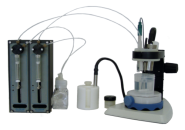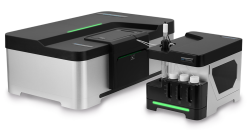Determination of Zeta potential
The zeta potential is an indicator of the stability of a dispersion and the mobility of its particles in external fields. A characteristic value is the isoelectric point (IEP, zeta potential = 0 mV), at which the particles agglomerate and the system precipitates. The DT-300 and DT-310 instruments determine the zeta potential of highly concentrated dispersions using the electroacoustic method. The BeNano instruments measure the zeta potential of nanoparticles via electrophoretic light scattering (ELS).
 Deutsch
Deutsch English
English


